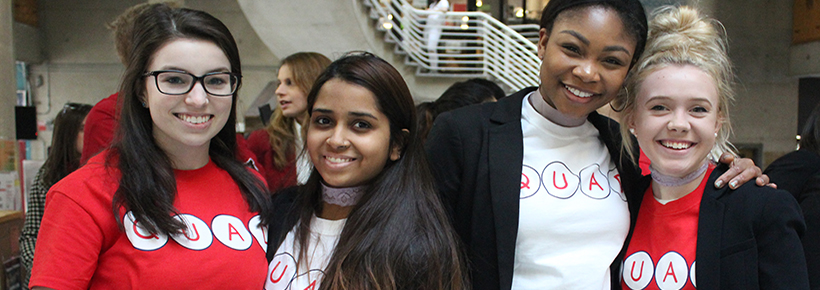Rhonda Lenton, vice-president academic and provost, has issued the following announcement to the York University community:

I am pleased to inform members of the Faculty of Graduate Studies that Professor Fahim Quadir has agreed to take on the role of Interim Dean of the Faculty of Graduate Studies and Interim Associate Vice-President Graduate. President Shoukri and I have brought this recommendation for Board approval; and the Board of Governors Executive Committee, on behalf of the Board of Governors, has now approved the recommendation of this appointment. Professor Quadir’s appointment will take effect June 1, 2017. Information will be forthcoming through Faculty Council regarding the search for the next Dean and AVP Graduate.
Dr. Quadir will be well known to members of the Faculty and the York community. He joined York in 2001 and is a Professor of Social Science and Development Studies in LA&PS. Prior to his appointment here, he held academic positions at Queen’s University, St. Lawrence University in New York, and the University of Chittagong in Bangladesh. He is the founding director of York’s graduate program in Development Studies and the undergraduate program in International Development Studies.
Dr. Quadir was appointed Associate Dean Students in the Faculty of Graduate Studies in 2013. As Associate Dean, he has championed initiatives to improve the graduate student experience and success, including an online admissions process, a protocol for electronic submission of theses and dissertations, and a streamlined system to advance eligible students from a master’s to a doctoral degree option. He has also enhanced the petitions process and led working groups on international students and graduate supervision. He played an important role in offering a new postdoctoral fellowship program and introducing York’s first comprehensive student professional development initiative. As a member of Senate’s Academic Policy, Planning and Research Committee, he was involved in key planning processes such as the UAP and IIRP. He is a recipient (2007) of a University-Wide Teaching Award in the full-time faculty category.
Dr. Quadir earned BA and MA degrees at Jahangirnagar University (Bangladesh), an MA from Northeastern University, and a PhD in Political Science from Dalhousie University. He has held many grants and fellowships, including Fulbright, SSHRC, IDRC, SSRC (USA) and Killam.
His research interests include South-South cooperation, emerging donors, aid effectiveness, good governance, civil society, democratic consolidation, market reforms, transnational social movements, human security and regional development. He is past President of the Canadian Consortium for University Programs in International Development and a Board Member of the Canadian Association for the Society of International Development.
I very much appreciate Dr. Quadir’s willingness to undertake this important responsibility. I know that he will provide outstanding leadership as Interim Dean and AVP Graduate, and I look forward to working with him and colleagues in FGS as we continue to enhance graduate education at York.

There will be opportunities prior to her departure to thank Dr. Barbara Crow for her leadership of the Faculty of Graduate Studies and to wish her well, but I want to take this opportunity to acknowledge and thank her for her significant contributions to graduate education at York, including chairing the Working Group in advancing a stronger alignment between graduate planning and all Faculties, strengthening professional development opportunities for graduate students, the implementation of a new funding model and health care plan for research-based graduate students to improve the student learning experience, development of services and supports for post-doctoral fellows, and the appointment of a wellness coordinator.























 Janzen, the DiMaura Professor of Conservation Biology at the University of Pennsylvania and technical advisor to Area de Conservacion Guanacaste (ACG) in northwestern Costa Rica, will look at where classical tropical national parks are gradually failing in many ways.
Janzen, the DiMaura Professor of Conservation Biology at the University of Pennsylvania and technical advisor to Area de Conservacion Guanacaste (ACG) in northwestern Costa Rica, will look at where classical tropical national parks are gradually failing in many ways.